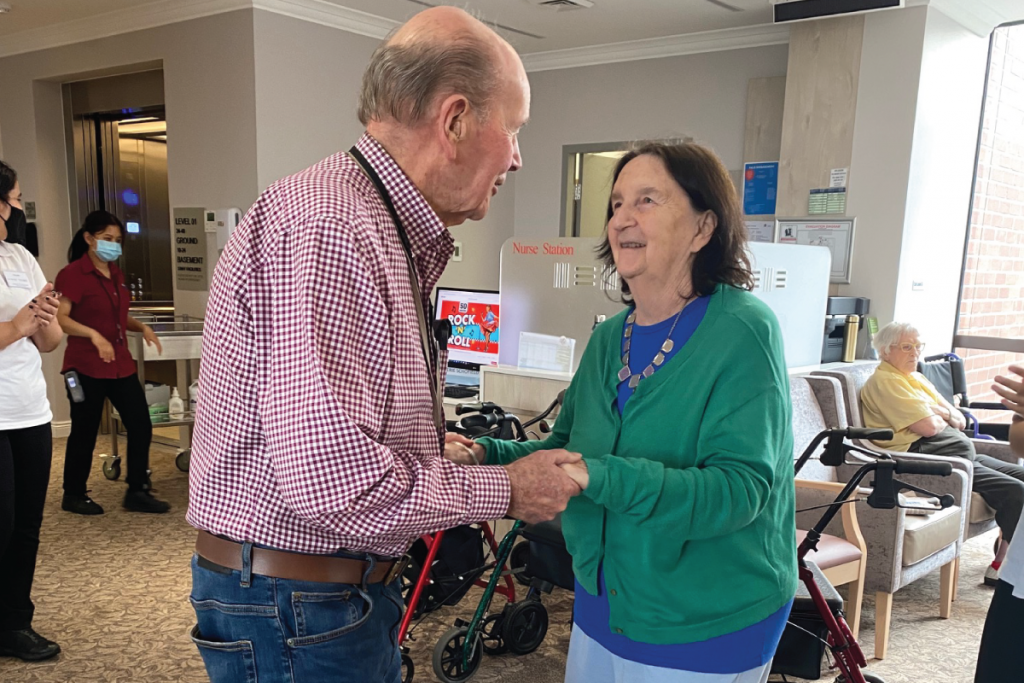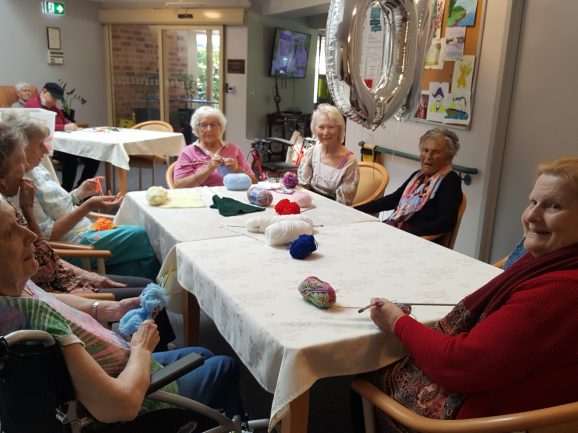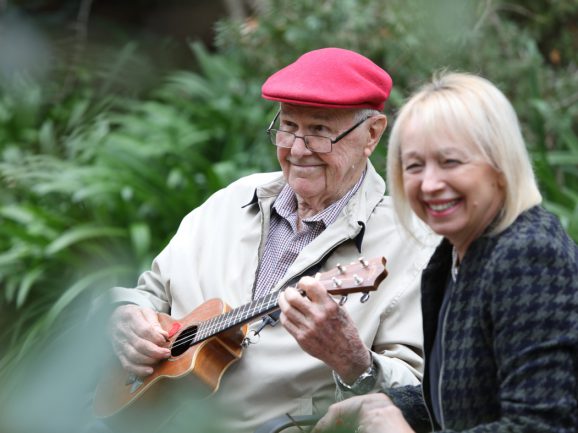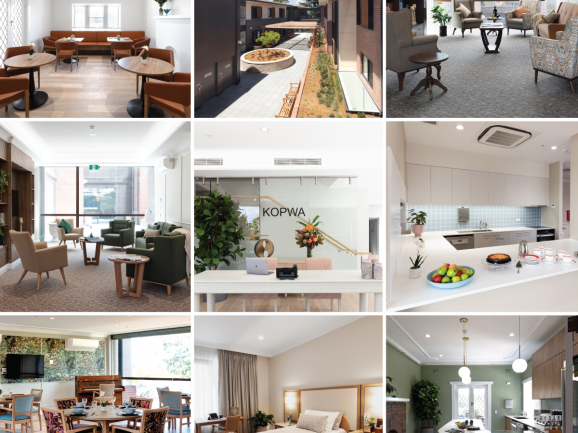Music therapy is an incredible way to help cognition and improve emotional wellbeing. Learn how KOPWA is using music therapy to help our residents enjoy better quality of life.
Music is part of the human experience. Most of us can’t help but sing, hum, whistle, or tap along to a beat so it is no surprise that music therapy has been found to have benefits for the elderly.
Much more than just listening to a song, music therapy is a research-based, allied-health profession that is used to help residents in care with their health, functioning, and mental wellbeing.
Applicable to all ages, music therapy is especially useful for those with cognitive deficits or a decline in their mental health.
Why music therapy?
Music stirs up memories and feelings, is a creative outlet and can be enjoyed passively or engaged in actively. It is a way to keep the mind active and engaged, both socially and emotionally.
Music therapy is particularly useful to combat depression, help cognitive function and create a purpose in life. It is increasingly used in aged care to give residents an enjoyable activity to look forward to.
Warding off depression
Depression is always a risk as people enter their later years. Reminiscence music therapy, a form of music therapy based around listening to music that stimulates memories of old times, has been found to be effective in fighting depression in many groups, particularly those who live with dementia.
Music is so evocative that an old song can take you back decades. Spending time with a group listening to old favourite songs and reminiscing not only fights depression, it helps bring people together to create new memories.
Improving cognition with music
Some of the areas where people struggle as they get older include forming short term memories, processing information quickly and maintaining focus.
Curiously, however, music is absorbed through a number of processes in the brain that remain preserved into old age. This means that, as long as hearing is adequate, even those with major cognitive decline can still comprehend and appreciate music.
It is sometimes even possible for people who can’t speak or who have severe speech impediments to be able to sing fluently.
This makes music an excellent way to keep seniors engaged with their environment and peers. It can be as simple as a sing-along or include the challenge of learning an instrument.
Engagement with music at any level helps to stimulate the brain and increase cognitive abilities. When cognitive abilities are functioning properly, wellbeing is increased.
Creativity and purpose
You are never too old to learn a new instrument. Music therapy often includes learning to play basic tunes. Working towards achieving incremental goals is excellent for mental health in people of all ages.
Not only is music therapy a creative outlet good for cognitive function, having something to work towards also creates a sense of purpose. This experience can be especially important to the elderly.
Music therapy at KOPWA
KOPWA residents enjoy music therapy with the talented Mark Fleming. Mark is a skilled musician and registered music therapist who loves to share the joy of music with all ages.
We find this program is an excellent way to have fun and enjoy being social together. Residents can watch or actively participate, and those who take part always enjoy Mark’s visits.
Find out more about Mark’s music therapy program at KOPWA.
Visit the KOPWA website to find out more about our special programs for elderly residents. kopwa.nicklarosa.net




